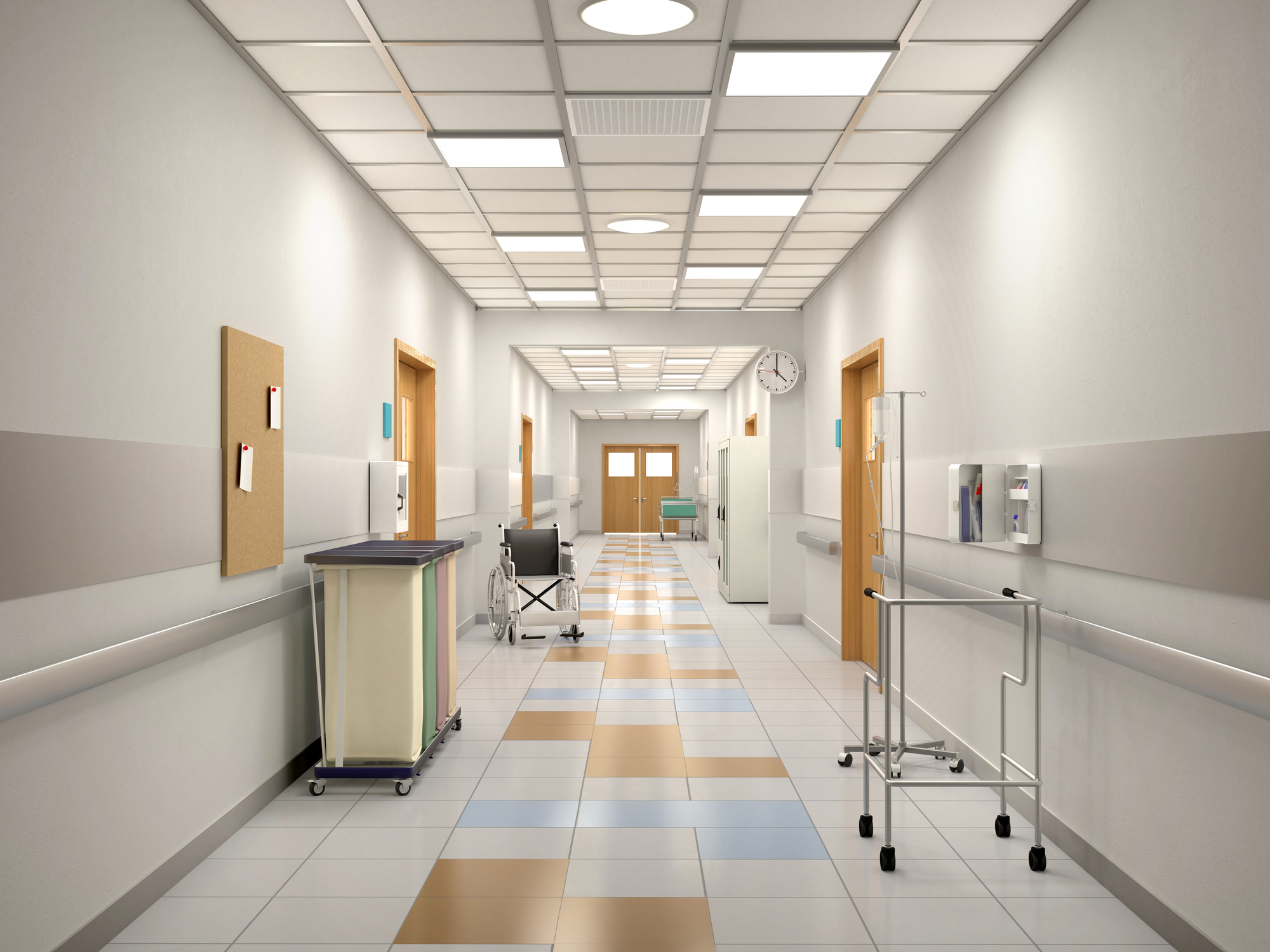People keep getting lost in hospitals. This app wants to stop that.
Meet MediNav


A free daily email with the biggest news stories of the day – and the best features from TheWeek.com
You are now subscribed
Your newsletter sign-up was successful
A trip to the hospital is rarely a pleasant experience, whether you're paying a visit to a sick relative or undergoing a medical procedure yourself. But adding to the health-related anxiety, you often have the hassle of figuring out how to get where you're supposed to go. Facilities that sprawl across multiple buildings, with countless elevator banks, endless mazes of hallways, and cryptic signage, is the norm at many hospitals. Just getting to the right place at the right time feels like a feat.
"You're typically in a high state of anxiety in a hospital. There's a study that showed that 30 to 40 percent of patients and visitors get lost at the hospital," said Mark Green, chief executive and co-founder of Connexient. "We're trying to improve the patient experience with indoor navigation."
He's referring to the New York City-based company's MediNav system, navigational technology built into hospital apps and on-site kiosks that provide detailed indoor maps of medical facilities for patients and staff. Think of it as Waze or Google Maps integrated directly into hospitals' own apps.
The Week
Escape your echo chamber. Get the facts behind the news, plus analysis from multiple perspectives.

Sign up for The Week's Free Newsletters
From our morning news briefing to a weekly Good News Newsletter, get the best of The Week delivered directly to your inbox.
From our morning news briefing to a weekly Good News Newsletter, get the best of The Week delivered directly to your inbox.
As soon as a patient parks her car at the parking garage, the app asks her where she wants to go, such as the cardiology department. It then shows the most direct route, guiding the way with a stream of blue dots, vocal prompts, and visual landmarks. Bluetooth beacons around the hospital help pinpoint the location of each user to within a couple of meters, rerouting them if they take a wrong turn. And when the patient is finished with her appointment, the app will guide her right back to her car.
From the patient perspective, the experience feels as seamless as using GPS when driving or walking around a city. And for hospitals, it's good for business, said Green. The system aims to drive down appointment no-shows (a costly problem), reduce the time staff spend giving directions, and improve customer satisfaction scores (a measure that's tied to the amount health-care providers are reimbursed by Medicare).
Right now, patients can use the technology anonymously — there's no need to sign up for an account or provide personal information. The system does collect aggregate data, however, including the most frequently visited destinations, along with average transit and wait times, that hospitals can use to improve operations.
"It gives hospitals a sense of how a facility is being used and where the bottlenecks are," said Green.
A free daily email with the biggest news stories of the day – and the best features from TheWeek.com
Forty-five hospitals, including the National Institutes of Health Clinical Center in Bethesda, Maryland, and The University of Alabama at Birmingham Hospital, have already incorporated Connexient's digital wayfinding service into their buildings. Green expects to work with around a total of 70 hospitals by the end of the year.
But the navigational service is just the beginning of what Connexient plans to offer health-care clients, said Green. He also wants to incorporate more personalized features, like appointment reminders, in the system.
"We are starting to integrate MediNav with major EHR [electronic health record] systems, like Epic and Cerner, so we can tie wayfinding to patients' appointments and automatically navigate them where they need to go," he said.
Sounds innovative, but the idea surfaces concerns many people have about privacy when it comes to medical information. A 2016 survey found that 70 percent of respondents distrust health technology — and they have reason to be wary. So far in 2018, there are already several dozen reports of health-care data breaches (affecting many hundreds of thousands of people) under investigation by the federal government.
Green said that patient privacy is a priority for his company, and the team is working on a design that leaves all of the patients' protected health information with the EHR system, rather than storing it on MediNav.
Also on the horizon for MediNav are safety and security capabilities, said Green. These features would introduce ways for people to request help, report a maintenance issue (like a spill), and trigger an emergency response anywhere at the hospital. The security team could see the location of the person who needs help and send the nearest officer to assist.
The current MediNav system comes at a substantial cost. Connexient operates on a subscription model, typically charging a hospital about $200,000 to $500,000 in its first year for the custom blueprints, maps, Bluetooth beacons, software licensing, and other essential tools, said Green.
Contracts servicing multiple hospitals can climb well into the multimillion-dollar range, he added. That could put the system out of reach for hospitals in rural or low-income communities, furthering the digital divide in adopting health-care technology.
Joni Sweet is a freelance health and travel writer based in New York City. She's been published by National Geographic, Forbes, Thrillist, The Christian Science Monitor, Prevention, Where magazine, Healthline, and HealthyWay, among others. When not jetsetting to far-flung destinations, she can be found reading up on the latest health news and trying out new yoga studios. Follow her work at www.jonimsweet.com.
-
 Local elections 2026: where are they and who is expected to win?
Local elections 2026: where are they and who is expected to win?The Explainer Labour is braced for heavy losses and U-turn on postponing some council elections hasn’t helped the party’s prospects
-
 6 of the world’s most accessible destinations
6 of the world’s most accessible destinationsThe Week Recommends Experience all of Berlin, Singapore and Sydney
-
 How the FCC’s ‘equal time’ rule works
How the FCC’s ‘equal time’ rule worksIn the Spotlight The law is at the heart of the Colbert-CBS conflict
